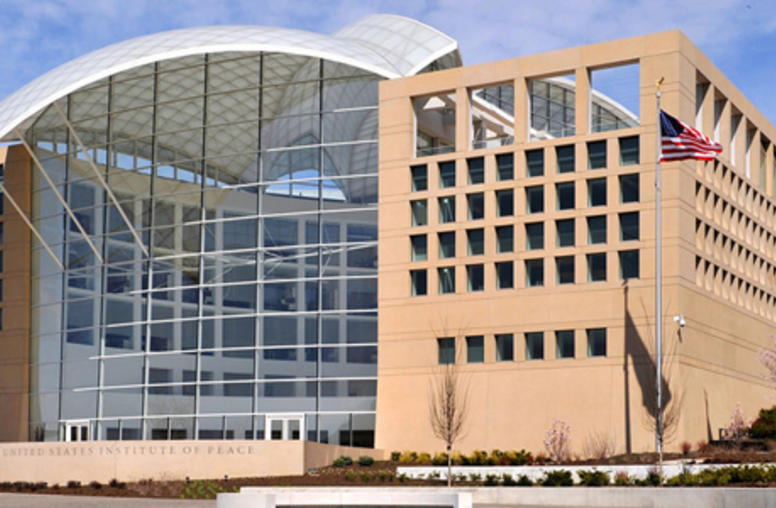
Religion, Violence, and Coexistence
On October 22, 2012, the U.S. Institute of Peace (USIP) hosted a panel discussion about civil society’s role in preventing and addressing provocative statements of religious bias and violent responses to it.
As a national, nonpartisan, independent Institute, the U.S. Institute of Peace draws on our exceptional convening power to create opportunities for diverse audiences to exchange knowledge, experiences, and ideas necessary for creative solutions to difficult challenges. We serve as an important, neutral platform for bringing together government and nongovernment, diplomacy, security, and development actors, and participants across political views. The Institute’s events help shape public policy and priorities to advance peaceful solutions to conflict and strengthen international security.

On October 22, 2012, the U.S. Institute of Peace (USIP) hosted a panel discussion about civil society’s role in preventing and addressing provocative statements of religious bias and violent responses to it.
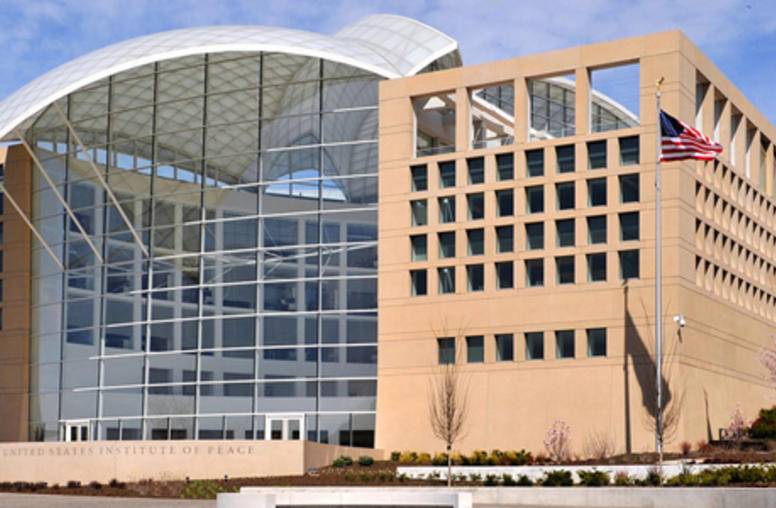
In May 2012, Education Above All, a Doha-based education group, commissioned papers from practitioners and thematic experts that map and analyze the most widely used of different curricula, collectively designated as “education for global citizenship,” and the policies that have accompanied their implementation. To explore the findings of this research, the project director, technical adviser and expert on conflict and education, Margaret Sinclair, discuss these research findings with experts...
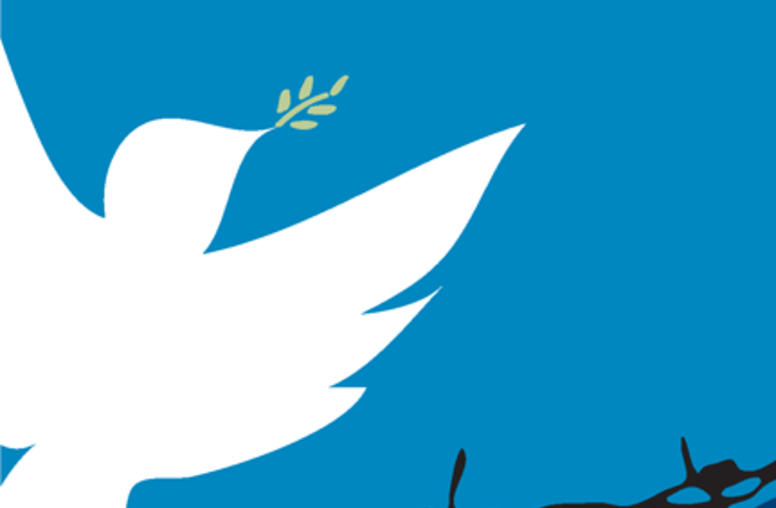
Today’s international conflicts typically involve multiple actors, interests, and drivers that have sparked long, violent histories. Ending these conflicts relies more and more on facilitated dialogue, a process in which a neutral third party helps a broad spectrum of conflicting parties overcome the many barriers to effective communication.
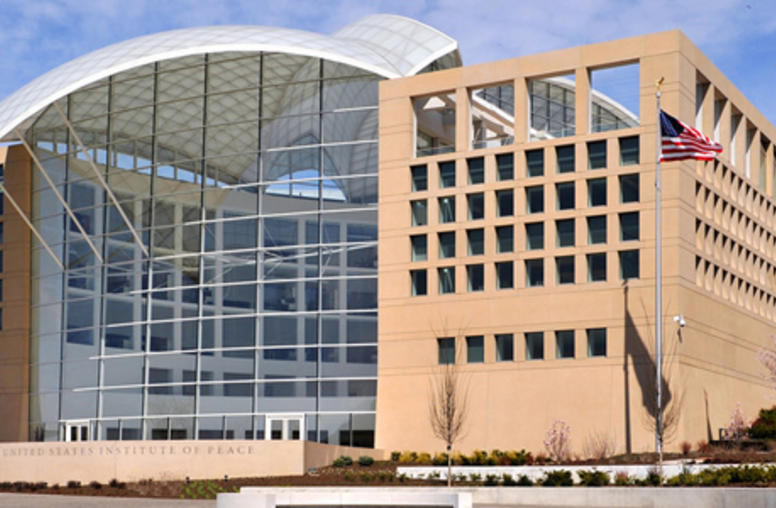
Dr. Chaiwat Satha-Anand, a prominent nonviolent activist and scholar from Thammasat University in Bangkok, Thailand, joined us for a conversation on the subject of transforming radical extremism with principles of nonviolence action.

Exchange 2.0 is a critical next step in international education and exchange that leverages the power of new technologies to vastly increase the number and diversity of students who have a profound cross-cultural experience as part of their education. At this event, policy-makers, funders, researchers and program implementers from the Exchange 2.0 coalition met to present and discuss new research on the impact of virtual exchange programs and explored opportunities for public-private collabor...

This workshop brought together experts in peacebuilding and data scientists to consider how various sensing and communications technologies might be used by local populations to more effectively recognize and avoid violent conflict. This focus for discussion is distinct from the forms of information gathering and analysis used by large organizations, such as the U.S. Department of Defense or the U.S. intelligence community, to inform resource allocation and decision-making by outsiders.
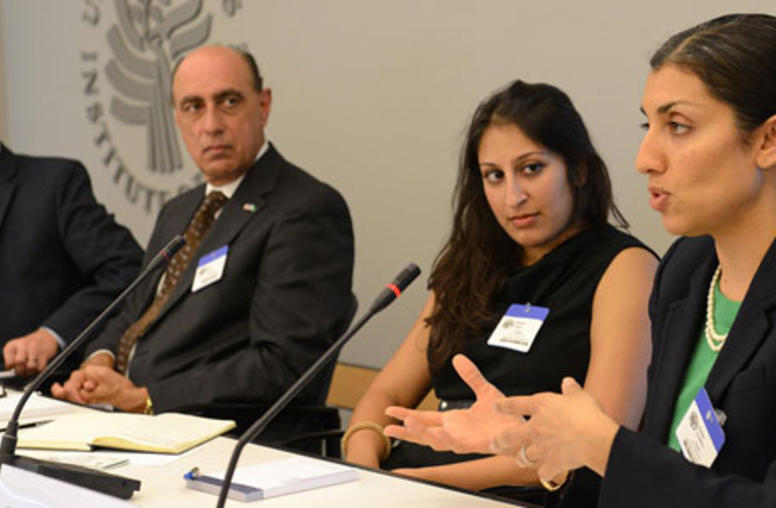
The School of Public Policy at George Mason University (GMU) and the United States Institute of Peace (USIP) jointly organized a one-day conference that focused on the Pakistani youth, public policy options, and the prospects for peace in the long run. Read the event coverage, USIP Conference and Program Work Examine Youth’s Impact on Peace Prospects in Pakistan.
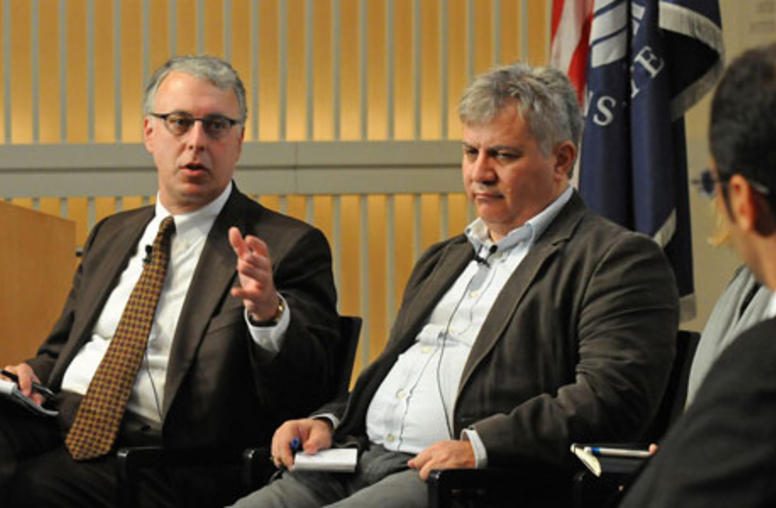
Over the past year, a group of opposition activists collaborated to develop recommendations and strategies for managing the challenges of a post-Assad transition. They spoke at USIP on October 4, 2012 for the first presentation in the United States of the document they produced: “The Day After: Supporting a Democratic Transition in Syria. Read the event coverage, 'Day After' Members Discuss Post-Assad Syria Transition at USIP
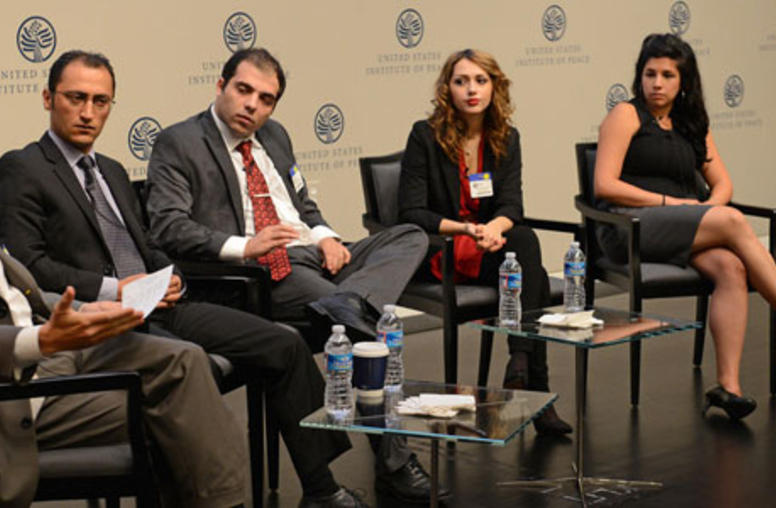
As part of the U.S. Institute of Peace’s Blogs & Bullets initiative, this event provided analysis and insight into the influence of new media in the Syria crisis, specifically on three types of actors: activists on the ground, journalists and media-makers who are reporting on the crisis, and policy-makers around the world. Read the event coverage, Event at USIP Looks at New Media in the Syria Crisis.
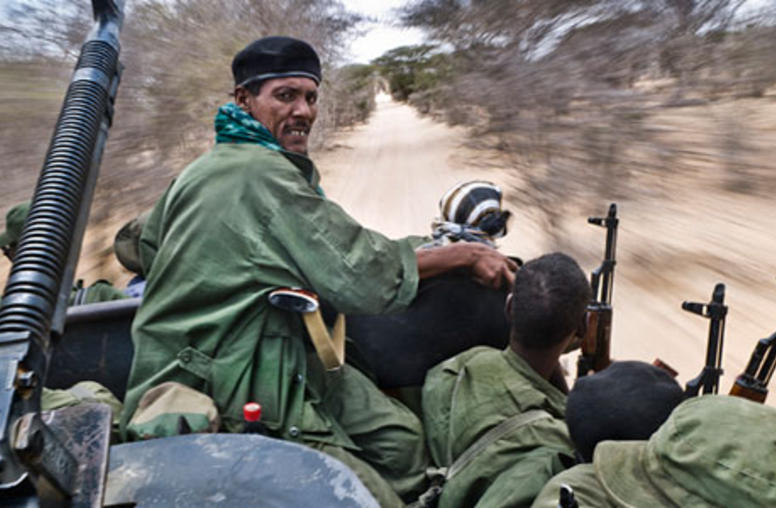
USIP convened a discussion of recent developments and international engagement in Somalia featuring Mary Harper, author of the new book "Getting Somalia Wrong? Faith, War and Hope in a Shattered State."